- Learning time
- 5 minutes
- First play time
- 15 minutes
Illusion
Designed by: Wolfgang Warsch
Illusion is a devilishly simple game of colours, made up from a deck of cards. The cards themselves have no numbers or text – just random patterns of four colours (red, blue, green, yellow) on a white background. On the back of each card, it tells you what percentage of each colour occupies the other side.
In each round, an arrow card is drawn showing players which colour they are focused on this round. Then, in turn, each player adds a card from deck to a row in the centre of the table, making sure that they choose the correct position for it: the least of the colour in question (let’s imagine it’s red) should be on the left, whereas the card with most red should be in the middle. All other cards should have red in ascending order between them, but – of course – players have to estimate these percentages correctly, with the patterns on the cards inevitably doing their best to distract you.
If, on your turn, you think any part of the row is incorrectly laid out, you can challenge instead of adding a card: now all the cards are flipped from left to right. If they’re in correct order, the player before you receives the arrow card as a point. If any part of the row is incorrect, you receive the arrow card instead!
First to three arrows is the winner.
The guru's verdict
-
Take That!
Take That!
None.
-
Fidget Factor!
Fidget Factor!
With more players, you can be waiting a little while whilst cards get scrutinised.
-
Brain Burn!
Brain Burn!
The rules are almost non-existent. The brain burning is about gauging the amount of colour on each card - not so much pattern-recognition as pattern-negation.
-
Again Again!
Again Again!
It's light and easy and doesn't last long, and the cards can flip in any order.


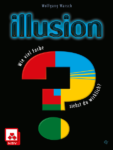



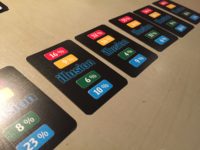




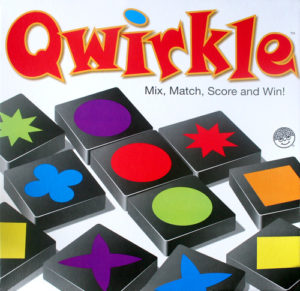
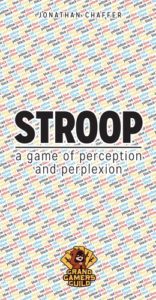
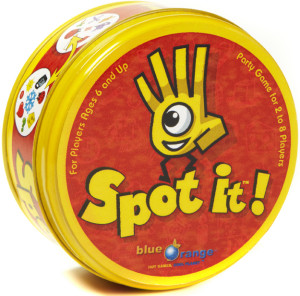
Sam says
I rather like Illusion - it's very simple to teach and play, and a different sort of challenge for your brain to many games out there. I think if everyone is focused on winning, it could be a source of frustration as the hand of fate may mean you don't want to challenge, and the person to your left either doesn't either (or challenges correctly!). But it's not the sort of game where winners and losers are important really; in every game the fun should be in the journey, rather than the destination, and with Illusion I'd say that's doubly so - even if the journey is a brief one! It can be played almost co-operatively (especially with kids) or in a more boisterous, table-talking fashion if you prefer that. Clever.